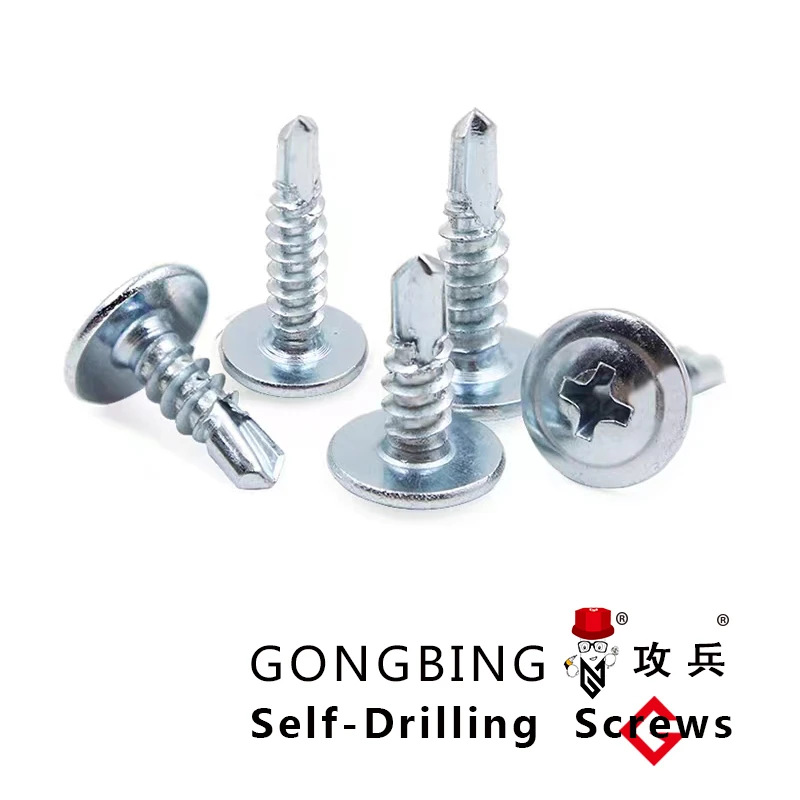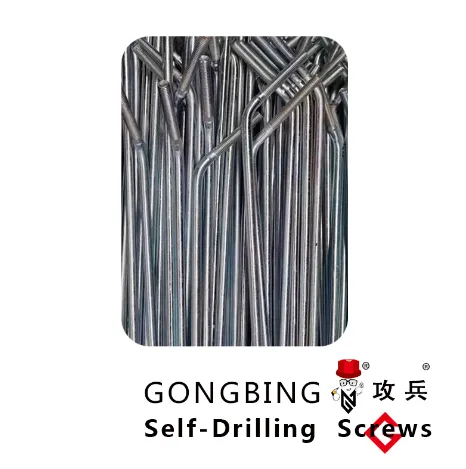Feb . 06, 2025 04:39
Komawa zuwa lissafi
wafer head self tapping screws
Self-tapping sheet metal screws with rubber washers have revolutionized the way many industries approach fastenings and sealing solutions. While these components may seem simple, their design and function demonstrate engineering expertise that underscores the impact small innovations can have on larger projects. This article intends to explore the intricacies of self-tapping sheet metal screws with rubber washers, their applications, benefits, selection criteria, and the crucial role they play in industrial and consumer projects alike.
The choice of rubber washer material is equally paramount. Typically, EPDM rubber washers are employed for their excellent resistance to UV rays and varying temperatures, which is critical for outdoor applications. Nitrile washers would be more suited for environments where oil resistance is pertinent. The installation process of these screws further emphasizes the design’s sophistication. Unlike traditional screws, self-tapping screws eliminate additional labor costs and time linked with pre-drilling holes. However, maintaining correct alignment and preventing stripping require technical competence. Knowing the right torque settings is essential to avoid overtightening, which can deform the washer and compromise the seal, or under-tightening, which could result in inadequate fastening and potential leaks. Innovation and some engineering creativity have expanded the applications of self-tapping screws with rubber washers. Beyond construction and automotive industries, they are becoming a staple in sustainable energy systems like solar panels. The role they play here underscores their importance, where they must securely hold panels against unpredictable weather while ensuring internal systems are not exposed to moisture or debris. Trust in their reliability is further established through standards and certifications. Products that meet international standards such as ISO and CE are considered trustworthy, providing further assurance of their efficacy and quality. Manufacturers who adhere to these standards are often seen as more reliable, making them a preferable choice for engineers and project managers. In conclusion, self-tapping sheet metal screws with rubber washers present an impressive blend of convenience and functionality. Their ability to enhance the durability and reliability of various assemblies makes them an indispensable component across different sectors. Professionals seeking dependable fastening solutions would be well-advised to consider the versatility and efficiency of these small but mighty tools. They embody a critical balance of technology and simplicity, providing practical solutions to complex problems while ensuring a seal that stands the test of time and environment.


The choice of rubber washer material is equally paramount. Typically, EPDM rubber washers are employed for their excellent resistance to UV rays and varying temperatures, which is critical for outdoor applications. Nitrile washers would be more suited for environments where oil resistance is pertinent. The installation process of these screws further emphasizes the design’s sophistication. Unlike traditional screws, self-tapping screws eliminate additional labor costs and time linked with pre-drilling holes. However, maintaining correct alignment and preventing stripping require technical competence. Knowing the right torque settings is essential to avoid overtightening, which can deform the washer and compromise the seal, or under-tightening, which could result in inadequate fastening and potential leaks. Innovation and some engineering creativity have expanded the applications of self-tapping screws with rubber washers. Beyond construction and automotive industries, they are becoming a staple in sustainable energy systems like solar panels. The role they play here underscores their importance, where they must securely hold panels against unpredictable weather while ensuring internal systems are not exposed to moisture or debris. Trust in their reliability is further established through standards and certifications. Products that meet international standards such as ISO and CE are considered trustworthy, providing further assurance of their efficacy and quality. Manufacturers who adhere to these standards are often seen as more reliable, making them a preferable choice for engineers and project managers. In conclusion, self-tapping sheet metal screws with rubber washers present an impressive blend of convenience and functionality. Their ability to enhance the durability and reliability of various assemblies makes them an indispensable component across different sectors. Professionals seeking dependable fastening solutions would be well-advised to consider the versatility and efficiency of these small but mighty tools. They embody a critical balance of technology and simplicity, providing practical solutions to complex problems while ensuring a seal that stands the test of time and environment.
Na gaba:
Sabbin labarai
-
Weatherproof Plastic Expansion Anchors for OutdoorLabaraiJun.06,2025
-
Sustainability in the Supply Chain: Eco-Friendly TEK Screws ProductionLabaraiJun.06,2025
-
Load-Bearing Capacity of External Insulation FixingsLabaraiJun.06,2025
-
Double Head Bolts: Enhancing Efficiency in Industrial MachineryLabaraiJun.06,2025
-
Corrosion Resistance in Chipboard Screws: Coatings for Wholesale DurabilityLabaraiJun.06,2025
-
Butterfly Toggle Bolts : Enhancing Structural ResilienceLabaraiJun.06,2025
